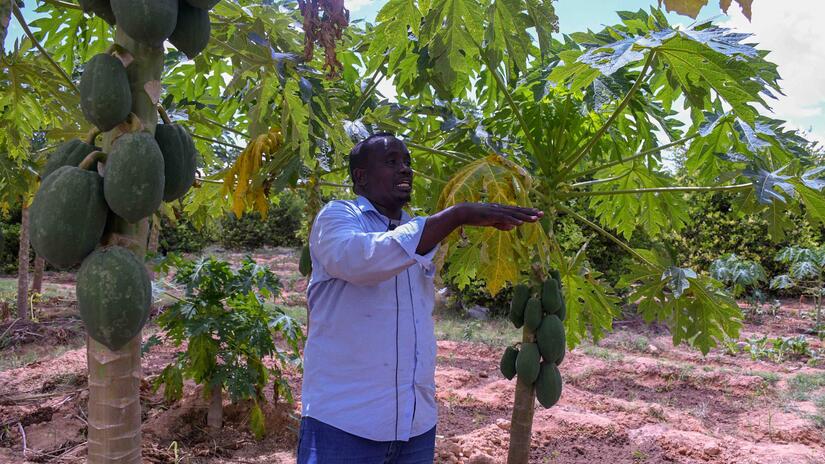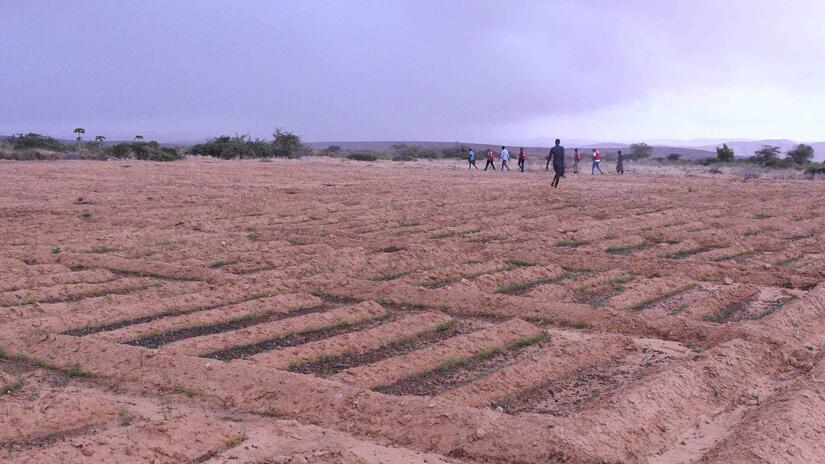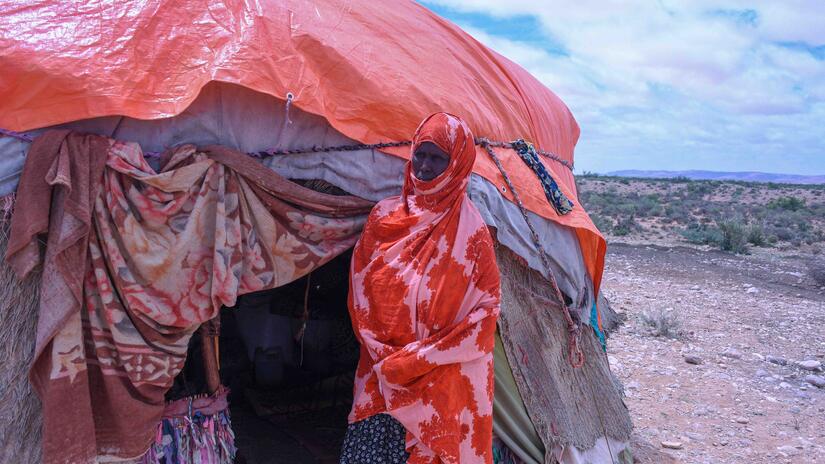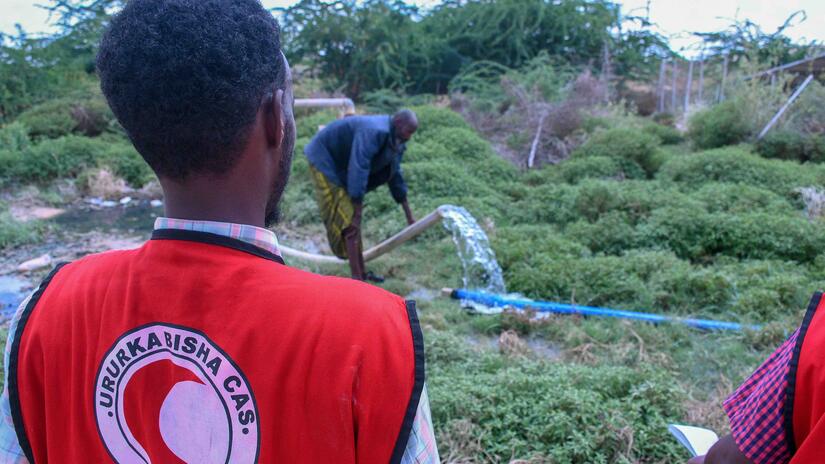By Timothy Maina, IFRC communications officer
Not too long ago, people living in the Cuun village were grappling with the challenge of basic survival.
Access to clean water for both domestic and agricultural purposes remained a constant struggle. The community's reliance on hand-dug artesian wells, which were prone to flooding during rainy seasons and regular siltation, significantly reduced their water yield.
This scarcity had a detrimental impact on their health and well-being, hindering their ability to cultivate crops, fruits, vegetables, and raise livestock
“We struggled to access clean water for drinking, cooking, bathing, and livelihood support,” says one of the community leaders, Yasiin Maxamed Jamac. “This had a negative impact on our health and well-being, and it made it difficult for us to grow crops, fruit, vegetables and raise livestock.”

One of the community leaders in Cuun village, Yasiin Maxamed Jamac, says the new water system has allowed local farmers to grow crops again.
Photo: IFRC/Timothy Maina
In 2022, the Somalia Red Crescent Society (SRCS), with the support from the IFRC, rehabilitated the solar-powered borehole pump and provided the Cuun community with adequate water sources for human and animal consumption, as well as irrigation purposes, as part of the IFRC's Africa Hunger Crises Emergency Appeal.
Located in the Somali semi-autonomous state of Puntland, the village is less than 400 kilometers from the tip of the Horn of Africa. Like many other parts of Somalia and the Horn of Africa region, Cuun has suffered from recurring failed rainy seasons and occasional flash floods in recent years.
Since 2021, Somalia has been under a state of national emergency due to ongoing drought. At the same time, the region around Cuun has also been destabilized by armed violence and population movement — adding to the challenges for those trying to maintain stable livelihoods.

Staff from the IFRC and the Somali Red Crescent make a tour of the new 100-square-meter farms created after the installation of the new pumping system.
Photo: IFRC/Timothy Maina
A landscape transformed
The project with Cuun village is just one example of how the IFRC and National Societies such as the SRCS join forces with local communities to re-inforce local resilience to climate-related shocks and unpredictable weather patterns, which have been aggravated by climate change. It’s the kind of urgent local action the IFRC is calling on world leaders to support at COP28 Climate Summit from 30 Nov. to 12 December.
For the village of Cuun, the project has had a transformative impact. Over 100 households now have their own small farms — 100 metres by 100 metres — where they cultivate a variety of fruits, vegetables, and crops, including papaya, lemon, watermelon, onion, tomatoes, pepper, carrot, sweet potato, coriander, sorghum, beans, and maize.
The community sells 80 per cent of their harvest in nearby cities, earning an average income of USD 200 to USD 500 per month per household. This represents a significant increase in their income and livelihood, enabling them to improve their food security and overall well-being.

Mama Ruqya and her family recently moved to Cuun village with their herd of goats looking for pasture.
Photo: Timothy Maina/IFRC
One of the beneficiaries of the project is Mama Ruqya*, a mother of eight. She and her family recently moved to Cuun village with their herd of goats looking for pasture. SRCS identified Mama Ruqya as one of the beneficiaries of the 5-month Cash Voucher Assistance programme, which provides people with cash vouchers that can be redeemed for food, water, and other essential items.
“During the recent drought season, SRCS supported us with US$ 80 cash grants for five months and it has sustained us a lot,” says Mama Ruqya. “Now as we are in the last stage of the prolonged drought and hoping for rain, we are grateful for the support that we have received.”
The initial rains have brought some relief to the herding and farming communities in Cuun village. Mama Ruqya and her family supplement their food supplies and water from the nearby Cuun village while their livestock graze in the reviving plains.
*Not her real name, to protect the identity of her children





